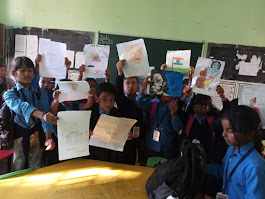Pradhanacharya Speaks
First and foremost, embracing Indian culture in schools allows students to connect with their roots. In today's globalized world, it is increasingly important for our youth to have a deep understanding and appreciation of their cultural heritage. By integrating Indian traditions, history, and values into the curriculum, we can provide students with a sense of identity and belonging, fostering a strong sense of pride in their ancestry.
Moreover, exposure to Indian culture enables students to develop a broader perspective and understanding of the world around them. Our diverse and multifaceted culture, spanning languages, traditions, art, and spirituality, offers unique insights into the complexities of human existence. By immersing students in Indian literature, music, art, and philosophy, we can cultivate open-mindedness and foster an appreciation for the richness of global cultural diversity.
Additionally, embracing Indian culture in schools can serve as a catalyst for promoting inclusivity and nurturing respect for diversity. India is a land of myriad traditions, languages, and religions, and by educating our students about this diversity, we can cultivate an environment that celebrates and respects differences. By understanding and respecting Indian culture, students can develop empathy and tolerance, essential qualities for functioning in a global society that is becoming increasingly interconnected.
In a rapidly changing world, where cultural values are often diluted by external influences, it is imperative that we preserve and perpetuate the authentic ethos of Indian culture. By incorporating Indian traditions and values into the school environment, we can ensure that our students are grounded in a moral and ethical framework that is deeply rooted in our cultural heritage. This grounding not only provides students with a sense of identity and purpose but also equips them with the moral compass necessary to navigate life's challenges with integrity and resilience.
Furthermore, the study of Indian culture can offer practical benefits for students, preparing them for the global job market. India has emerged as a major player in the global economy, and knowledge of Indian culture, language, and business practices can provide students with a competitive edge in the professional arena. By offering courses in Indian languages, history, and business traditions, we can equip our students with the skills and insights necessary to thrive in an increasingly interconnected global economy.
To effectively integrate Indian culture into our schools, it is critical to collaborate with cultural experts, scholars, and practitioners to develop comprehensive curricula that authentically represent the diverse facets of Indian culture. By incorporating these voices, we can ensure that our students are exposed to a balanced and accurate portrayal of Indian traditions and values.
In this endeavor, it is also essential to engage the broader community, including parents, elders, and local cultural organizations, to create a supportive ecosystem for the promotion of Indian culture in our schools. By involving the community, we can tap into a wealth of knowledge and resources that can enrich the learning experience and provide students with opportunities to engage with Indian culture outside the classroom.
As we embark on this journey of embracing Indian culture in our schools, it is crucial to adopt a forward-thinking approach that encompasses both traditional and contemporary aspects of our cultural heritage. While respecting age-old traditions, we must also recognize the dynamic nature of culture and its ability to evolve and adapt to modern times. By striking a balance between tradition and innovation, we can ensure that our students gain a holistic understanding of Indian culture that is relevant to their lives in the 21st century.
In conclusion, the integration of Indian culture into the educational fabric of our schools holds immense significance for the holistic development of our students. By empowering our students with a deep understanding and appreciation of Indian culture, we not only nurture a sense of pride and identity but also equip them with the values, skills, and perspectives necessary to thrive in a globalized world.
I am committed to championing the cause of promoting Indian culture in our schools and look forward to working collaboratively with our dedicated educators, students, and the wider community to make this vision a reality. Together, we can create an educational environment that celebrates and preserves the rich tapestry of Indian culture, enriching the lives of our students and preparing them to be compassionate, culturally aware global citizens.
Regards
Meghna Kakoty
Vande Mataram
Editorial
Namaste
 As a new e-publication
with a short beginning and a tall commitment to bringing you interesting,
informative and easy-to-read magazine based on holistic development of your
child and how we take Indian Culture to our classrooms. This magazine will be
published half-yearly and will mainly focus on educating children about Indian
Culture and traditions. India is a country with varied heritage and culture.
Children know about festivals and celebrations but are still missing out on the
deeper diversity that is rooted in our culture.
As a new e-publication
with a short beginning and a tall commitment to bringing you interesting,
informative and easy-to-read magazine based on holistic development of your
child and how we take Indian Culture to our classrooms. This magazine will be
published half-yearly and will mainly focus on educating children about Indian
Culture and traditions. India is a country with varied heritage and culture.
Children know about festivals and celebrations but are still missing out on the
deeper diversity that is rooted in our culture.Parents and
teachers need to inculcate moral and ethical values in children. Children
understands the importance of family and how it acts as a support system. They learn to accept their heritage which ensures that there
is no insecurity.
Students can
connect to their culture and appreciate where they come from. Children learn to
respect elders, continue to uphold their traditions, and maintain the values
passed on from generations.
In today’s hi-tech
and fast paced world where children are confused between modern living and
tradition. It is our responsibility to strike a perfect balance between
retaining the required traditional values, culture, and customs helping
children embrace their identity and also remain connected to their roots no
matter where they aspire to live in the future.
This is only possible by imbibing and inculcating them through cultural forms and practices and in our Vidyalaya we try to integrate Indian Culture in our classrooms. This magazine this year is dedicated to the practice of Indian Culture through various activities in our classrooms.
Regards
Alankrita Saikia Baruah
Editor
Activity: Tribute to our soldiers and Shraddhanjali to the victims of Pahalgam (Class VIII) under the guidance of Jyotsna Didi
English Activity: Exhibition - Environment Day (Class IV & V)
Date: 7/6/2025
The primary aim of the exhibition was to spread awareness about environmental conservation and to encourage young minds to adopt eco-friendly habits from an early age. The students actively participated and showcased their understanding of how proper waste segregation and recycling can contribute to a cleaner and greener planet.
Highlights of the Exhibition:
Recycling Projects: Creative projects made from recyclable materials like paper, cardboard, plastic bottles, and old newspapers were displayed, illustrating how waste can be transformed into useful items.
Creative Art: The exhibition also featured an impressive collection of artwork made entirely from waste materials, including wall hangings, pen holders and decorative items.
Slogan Writing: Students participated enthusiastically in a slogan writing activity. Thought-provoking slogans such as “Save the earth”, “Be Clean, Be Green” and "Beat the plastic pollution" reflected the students' creativity and awareness of environmental issues.
The event was a great success and served as an excellent platform for students to learn, express, and inspire others through their work. It reinforced the value of sustainable living and highlighted the role of young citizens in protecting the environment.
English Activity: Puppet Show (Class V)
Hand Painting: Love for other Species (Classes IX & X)
Title: "Building a Greener Tomorrow: An Exhibition on Sustainable Development Goals"
As part of our school's commitment to environmental awareness and sustainability, Class X organized a Sustainable Development Exhibition as part of their multi-disciplinary IT project on the chapter Green Skills. The event aimed to educate students about the importance of sustainable living and showcase innovative solutions for a greener future. Along with the exhibition they presented their models through PowerPoint Presentation and proper documentation using Libre Office.
Exhibition Highlights:
1. Renewable Energy: Students displayed models and presentations on solar, wind, and hydro energy.
2. Waste Management: Exhibits showcased recycling methods, composting, and waste reduction strategies.
3. Sustainable Transportation: Displays featured electric and hybrid vehicles, cycling, and walking.
The Sustainable Development Exhibition was a resounding success, empowering our school community to contribute to a greener future. We look forward to continuing this initiative and inspiring positive change.
Science Activity on Electricity
Lacing Activity
Reading Festival
Reading skill is foundational for reading and literacy. Our Vidyalaya organized a Reading Festival on 24th to 26th June 2024 necessary for the evaluation of phonemic awareness in students from classes 1, 2, and 3, which was analyzed by 19 teachers across different classrooms.
Number & Colour Identification ( Balvatika I)
Vivekananda Kendra Vidyalaya, NEEPCO Bokuloni, had the opportunity to participate in the South Indian Inter School Model United Nations. A total of 13 students from classes VIII-X took part in this prestigious event.
The event was conducted in two phases. The first phase was an orientation cum training program held on June 8, 2024. Following this, the final presentation took place on June 15, 2024, via Zoom.
The final presentation and opening ceremony began with the introduction of the jury members. The final presentations were divided into different slots corresponding to various committees. The program started at 9:00 AM and concluded at 6:00 PM.
During the opening ceremony, students were divided into different categories according to their committee. The session, conducted from 9:00 AM to 6:00 PM, saw enthusiastic and active participation from all students. They shared their ideas, views, and opinions with other delegates from different countries.
The results were declared during the closing ceremony, receiving positive feedback from the jury members. Notable achievements include:
- High Commendation Category: The delegate of Japan, represented by Monirmoy Borgohain (Class X), under the Committee of the Economic and Social Council (ECOSOC).
- Special Mention Category: The delegate of India, represented by Tanushka Dutta (Class X), under the Committee of ECOSOC.
- Verbal Mention Category: The delegate of France by Kabita Thapa (Class X) under ECOSOC. This accolade is a testament to Kabita’s exceptional skills in diplomacy and her comprehensive understanding of international socio-economic issues.
- High Commendation Award : This prestigious recognition was awarded by the delegate of Pakistan, represented by Akangsha Dutta of class VIII, under the Committee of WHO.
Moreover, in the Best Position Paper category, Angelina Duwara of class X representing Turkey under the Committee of WHO, received the award. Angelina's paper stood out for its insightful analysis and strategic solutions to global health challenges, showcasing her profound knowledge and dedication.
The efforts and performances of the remaining eight students did not go unnoticed. They were highly appreciated by the jury board members for their active participation and valuable contributions to the discussions and resolutions at the MUN conference.
In a remarkable development, Miss Akangsha Dutta has been selected to participate in the International MUN, which is scheduled to be held in August. This selection is a significant milestone, reflecting her outstanding capabilities and potential to excel on an international platform.
These achievements highlight the hard work, dedication, and excellence of our students in the realm of international diplomacy and policy-making. We extend our heartfelt congratulations to all the participants and look forward to their future successes.
The students of our Vidyalaya displayed commendable performance, gaining invaluable experience and learning from this international platform.
Pre-writing motor skills (Balvatika 1)
Refraction Through Glass Slab (Class X)
विषय - हिन्दी ( वचन ) कक्षा - १
Fine Motor activity to develop prewriting skills
Assamese Poem (Class II)
Peer Group learning in Maths Class (Class I)
Educating the Mind without Educating the Heart is No Education at All (Class VII)
Paper Pasting Activity on topic- Development (Social Science, Class X)
Image Formation by Concave Mirror (Class X)
A funfilled coding workshop was organized at our Vidyalaya on 8th February 2024 for Class VI students by Alankrita Saikia Baruah Didi. She taught them how to write logic for creating small games. The students showcased their IT skills by creating small online games on Scratch. The students have been learning about code, algorithms, bug, debug, and if-else statements from the last 2 months and on the day of the workshop they were completely engaged and exhibited their interest and talents that far exceeded our expectations. Throughout the workshop they were not only entertained but also educated and could easily grasp complex concepts easily. We all hope for a great future for all our budding IT enthusiasts.
Vivekananda Kendra Vidyalaya NEEPCO Bokuloni organised an Art Exhibition cum Sale from December 27 to December 30, 2023, to celebrate Samarth Bharat Parva on the occasion of completion of 25 years of our Vidyalaya. In this exhibition, 26 selected paintings were displayed. The paintings displayed a fervour of festivity and creativity. Our little artists belonged to classes VII, VIII, IX and X. The exhibition was authorized by Smt. Meghna Kakoty Didi, Principal, VKV (NEEPCO) Bokuloni and guided by Sri. Samar Chiring Sir. The exhibition was inaugurated by chief guest Sri. Rahul Kumar Gohar, Deputy General Manager (Finance), on December 27, 2023, at 11 am. Subsequently, the exhibition entertained 450 students and around 150 visitors over three days. The exciting paintings left everyone spell bounded.














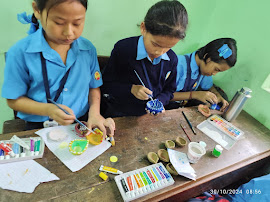
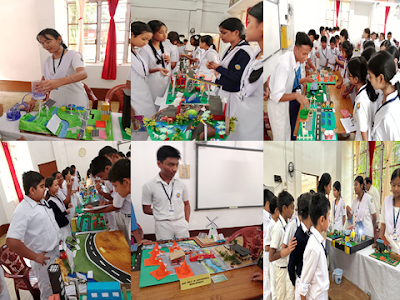






























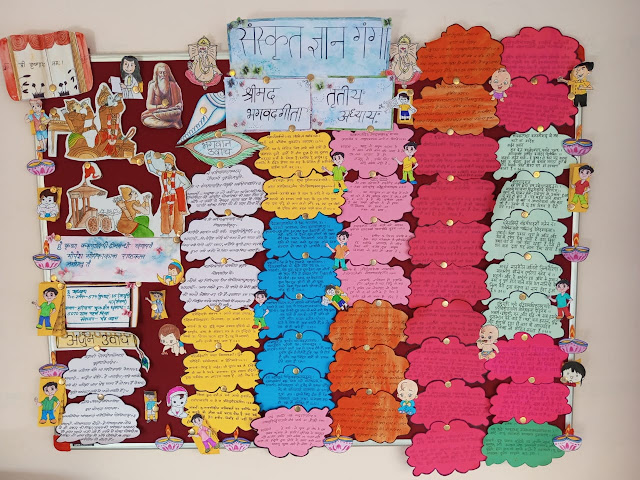
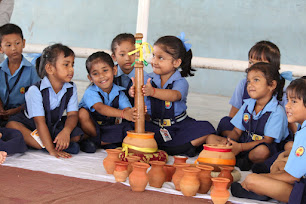








.jpeg)

.jpeg)



























